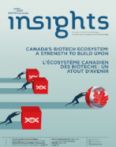Two Must Know Themes in Biotech for 2016

As it relates to the biotech industry, there are two themes to be mindful of as we enter the new year. The first theme is correction. Biotech indices have gone and continue to go through a significant correction since September 2015. According to a recent Forbes article, out of 142 VC backed biotech IPOs that were completed between 2013 to 2016, 74% are trading below their IPO price. However, the total value of all the companies is higher than original IPO, meaning that 26% of high quality companies still balance out the rest.
For the first time in four years, the entire month of January did not have any IPOs and when February arrived, only a few companies broke the dry spell. All IPOs so far have the following common factors:
- They have technologies that are in very hot biotech prospects (i.e. gene editing, immunotherapy, immune-oncology, etc),
- They were backed by large VCs and Pharma,
- They all had significant (over 50%) insider participation.
So what should many other companies with compelling science and sound management do? Get creative.
Considerations are those relating to revenue, partnerships, and collaboration. Can revenue be generated early on? Can pharma partnerships generate some income? Can collaboration with foundations be formed to offset some costs? In certain cases, companies should look at going public on a junior stock exchange (i.e. TSX) and graduate to NASDAQ / NYSE when valuation is adequate and markets improve.
The second theme is that health economics and reimbursement will be major discussion, given the fact that we are in a hotly debated US election year. It may be coincidental, however, it’s important to note that the day Hillary Clinton tweeted her plan to take on outrageous pricing pharma (referring to Turing Pharma), the market correction started. In Turing Pharma’s case, the management increased the price of a generic drug (Daraprim) by 7,000% overnight.
Unfortunately, Turing gave the entire industry a bad rep. Although, prices of pharmaceuticals have gone up significantly (new cancer drugs cost at least twice as much as new cancer drugs ten years ago), many of these new treatments have life-changing outcomes. New hepatitis C treatments cure hepatitis while costing the system hundreds of thousands of dollars. New cystic fibrosis treatments cost several hundreds of thousands of dollars, but in certain cases cure cystic fibrosis. So how do payers and patients justify paying for state of the art treatments that are ground breaking, without going bankrupt? Many of the expensive new treatments fall in personalized medicine. Should personalized medicine result in personalized bankruptcy?
We believe there is a delicate balance on pricing and health economics needs to be considered early on in development. A high price can be justified if material clinical benefit is observed. Although new Hepatitis C, Cystic Fibrosis and cancer drugs are expensive, one needs to look at the entire spectrum and measure overall benefits to the system. Pharma companies should be prepared for pay-for-performance pricing.
Recently The Economist published a study evaluating “Value Based Pricing” and how various payers across the globe deal with reimbursement of novel medicines. We invite you (especially our friends in the government) to download this study. You can view the study in pdf here (registration required).
At Novateur we are building a Health Economics & Reimbursement unit to address the needs of government and companies.
Brent Korte is a new addition to our team, bringing recent experience in the healthcare sector including the last 22 years at Johnson & Johnson. His most recent role was as the National Director of Government Affairs and Market Access responsible for a team across the country, working with all jurisdictions politically and bureaucratically to obtain market access for key J&J brands in pharmaceuticals. He will be leading our other health economic advisors from Europe and the US.
Read Brent’s first Novateur blog post titled Expanding in a Restricting World: Value Added Medicine on our blog.



